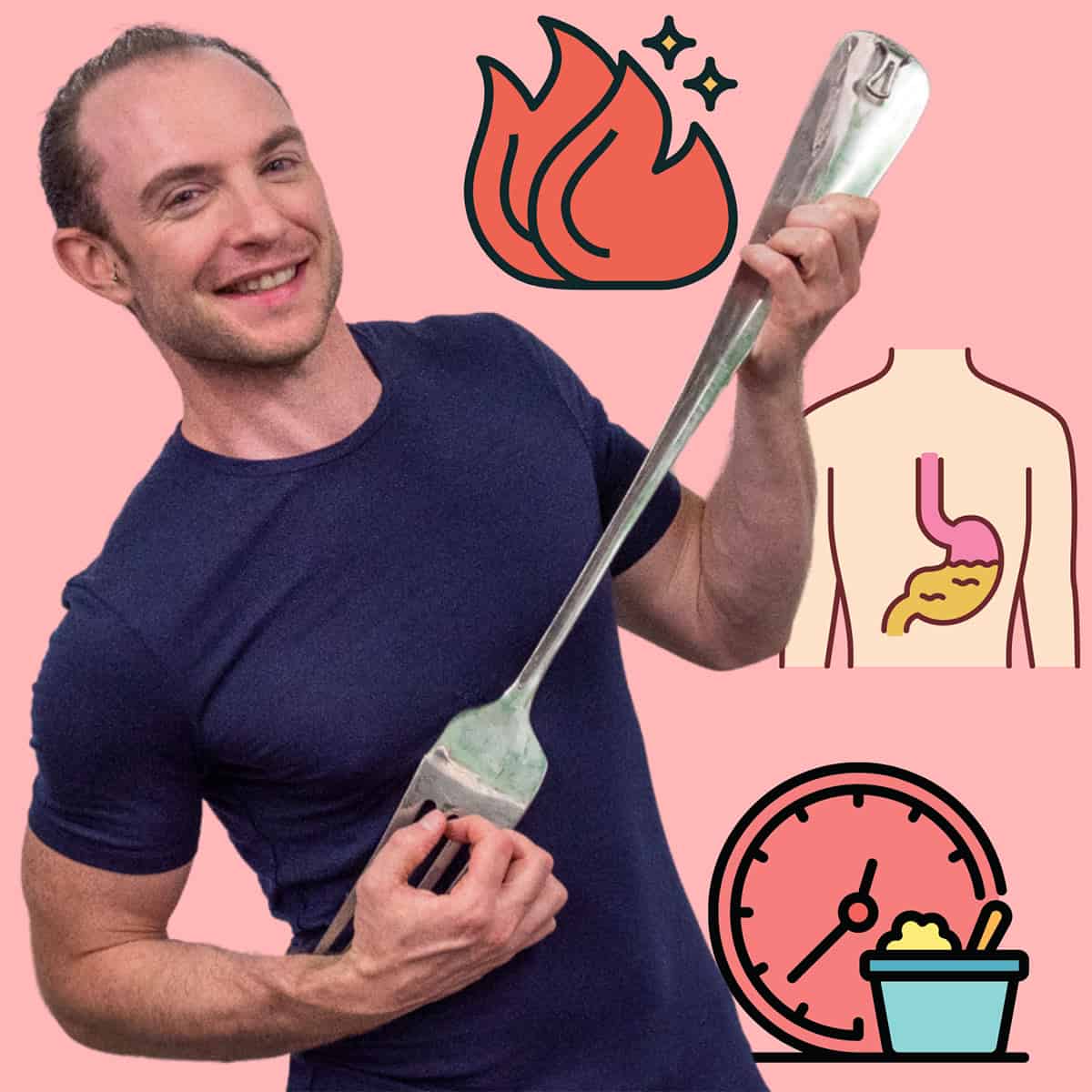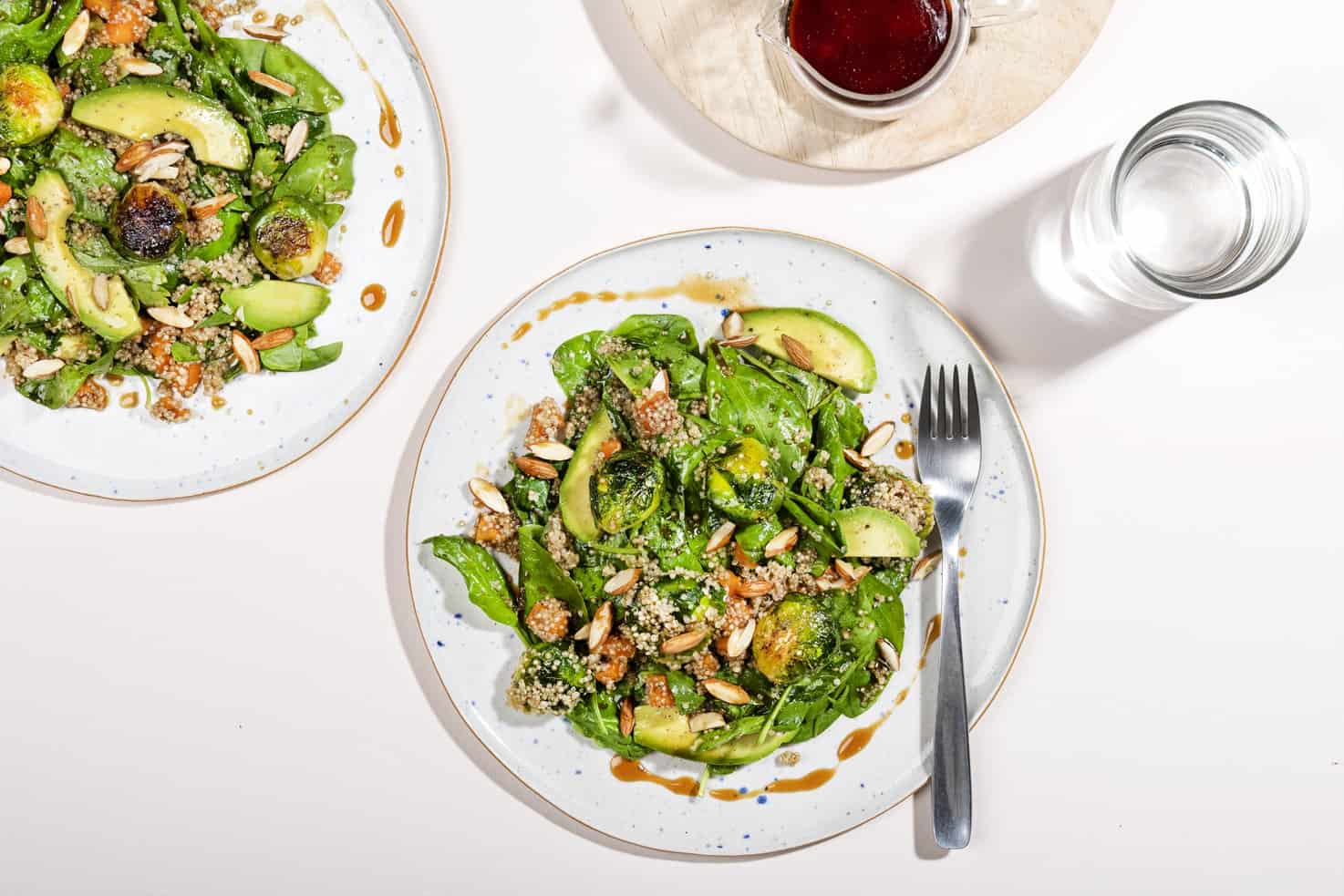Enter your email & we’ll send it to your inbox. Plus, get great new recipes from us every week! By submitting this form, you consent to receive emails from Hurry the Food Up. Well, we are here today to explain to you that there is a scientific reason for that. The good news is that you’re not alone in this, it’s a common question for everyone. Before we get to that, let’s first explain what metabolism is. Metabolism is the process by which your body converts calories in foods and drinks into energy. The minimum amount of energy your body needs is called the basal metabolic rate (BMR). This rate depends on your age, fat-free mass, and how much you exercise and eat. The higher the rate is, the more calories you burn and the easier it is to lose weight and keep it off. In this article, we will find out how your body age affects your basal metabolic rate and if there’s a way to overcome it.
Does Metabolism Slow Down with Age?
The answer here is yes, and no! I’m sure you have heard (or maybe experienced) that your metabolic rate decreases as you age. But is it actually true? Well, some recent research shed light on this and demonstrated that between 20-60 years of age there doesn’t appear to be any change in your resting metabolic rate. After 60 there does seem to be a gradual downward decline. There are lots of positives and negatives to that study, but it seems to suggest that the ‘middle aged spread’ can’t really be blamed on a slowing metabolism – at least not in such an exact sense. It is likely that your metabolism does slow with age, but it’s more to do with lifestyle and behavioural habits, as opposed to just blaming your body for your metabolism slowing down! The two main players here are the declining rate of muscle mass and being less active. As a natural process of aging, you lose some muscle mass and as a result, the metabolism slows down. A study found that people aged 70 had 9 kg less muscle mass and an 11% slower metabolic rate than people who are 40 years old. Moreover, you may be less active than you used to as you get older. One study concluded that elderly people tend to engage in less physical activity mostly due to reduction in muscle strength and changes in body-fat percentage, flexibility, agility, and endurance. As a result of being less active, your metabolism slows down and this may lead to weight gain. Don’t worry though, you can prevent this drop in metabolism by engaging in some form of physical activity regularly. One study of 65 healthy and weight-stable women aged 21-35 or 50-72 showed that women who regularly perform endurance exercise did not observe an age-related decline in their metabolic rate. They also had lower levels of body weight and fat percentage compared to sedentary women. Until now, a slowing metabolism as you age may have sounded pessimistic to you. But, now here comes the good part of the article. The best news is that there are ways to speed up your metabolism. And believe me, they’re surprisingly easy to adapt to your lifestyle.
How to Have a Fast(er) Metabolism?
Although you cannot stop aging and its natural outcomes on your metabolism, you can benefit from adopting healthy habits for a faster metabolism.
Physical activity
As mentioned above, engaging in regular physical activity helps you maintain muscle mass, which is key to preventing weight gain. If you want to build some muscle mass, you should engage in some form of strength training such as lifting weights, working out with resistance bands or your body weight, or yoga that involves more strengthening moves rather than meditating moves. Keep in mind that the more muscle mass you have, the higher your metabolism will be. If you aim to burn calories to lose or keep your weight stable, you should mostly engage in aerobic exercises. These include walking, running, cycling, hiking, dancing, swimming, and more. Remember that it’s important to choose an exercise that you enjoy so you keep doing them. If it seems hard for you to begin, try 10-15 minute sessions of what you like most. For example, a 15 min walk in the neighborhood followed by a 10-minute dance at home to a song you love would count as a nice welcome to a more active you 😊. It’s also worth saying that the exercise DOESN’T have to be INTENSE to be useful for weight loss! You don’t have to feel exhausted afterwards, sweating in a heap on the floor. High intensity exercise does come with its own benefits, but it isn’t strictly necessary for weight loss!
Balanced Diet
If you have read our previous articles, you have probably realized how much we recommend on following a balanced diet. And we will do it once again. Following a balanced diet will also speed up your metabolism and help you in keeping your muscle mass when accompanied by regular physical activity. While some foods help you boost your metabolism, there are some foods that slow metabolism. As you might guess, these are mostly fried, ultra-processed, and high-sugar foods. One study that followed 120,000 adults over three decades concluded that people gained an average of 2.3 kilograms every four years with increased consumption of potato chips and gained 2 kilograms with each daily serving of sugar. Moreover, they gained less weight when they consumed more healthy foods such as fruits, vegetables, and whole grains. If you’d like to find out more on foods to speed your metabolism, check out our article on metabolism booster foods and see how you can fit them in your diet. In conclusion, certainly muscle mass and activeness decline naturally due to aging. So, we can say that age accounts for the negative changes in metabolic rate. However, now that we know how to overcome this slowing metabolism, it should be easier to shape your nutrition and health strategies throughout your lifespan to keep your metabolism higher for a longer period of time.




